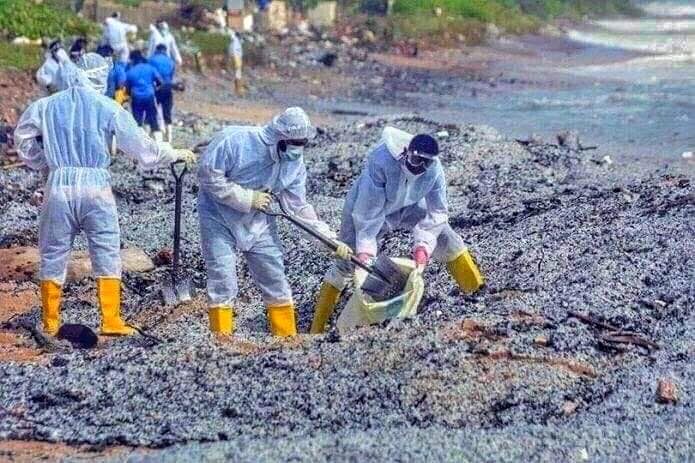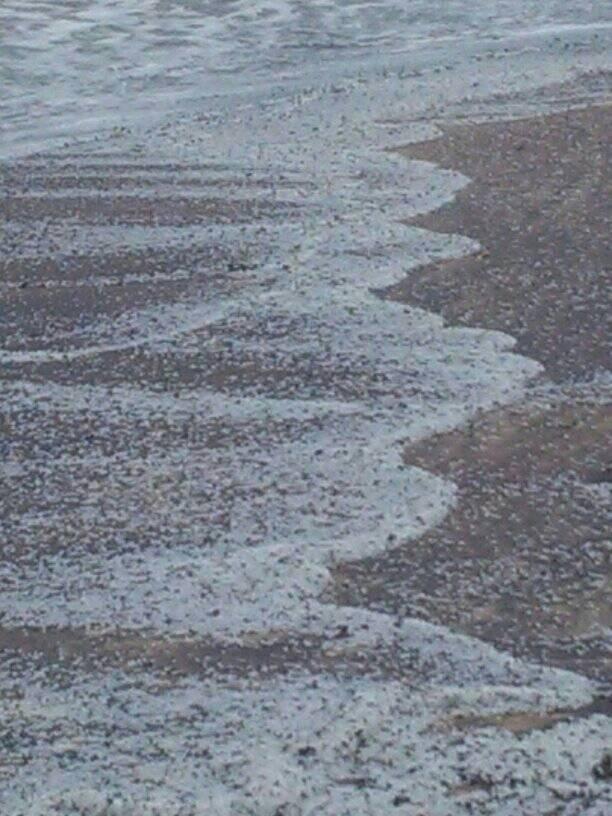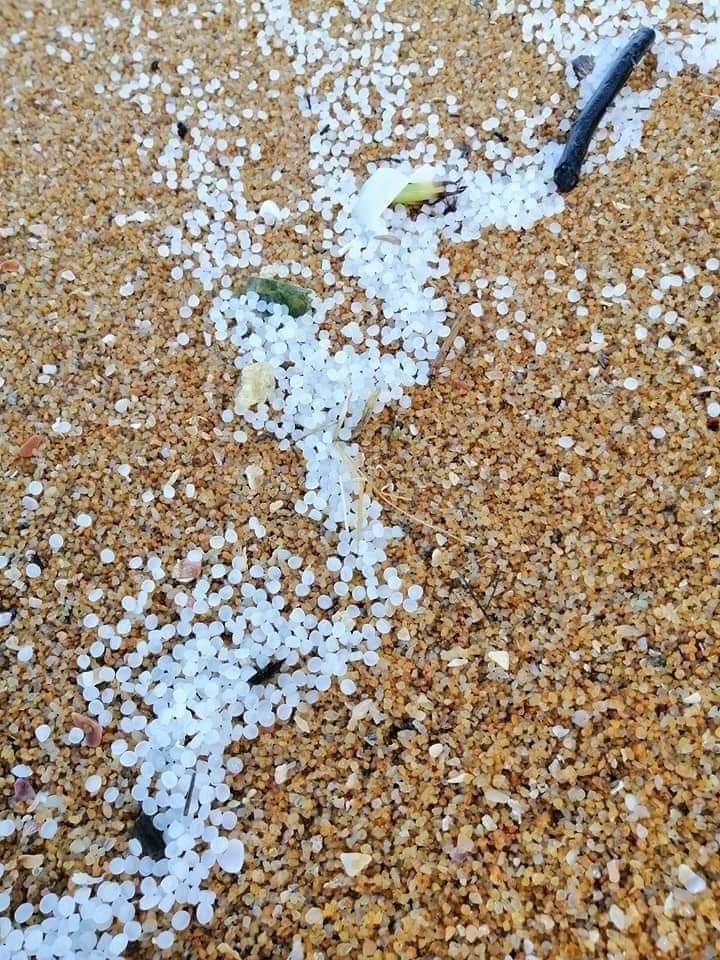Fidra are devastated to see Sri Lanka is facing one of its worst marine pollution events to date. This is due to a container ship catching fire last week off the west coast of Sri Lanka. The X- Press Pearl is said to have caught fire due to a leak of nitric acid on board the vessel and has burned for numerous days spilling vast quantities of pre-production plastic pellets (nurdles) and hazardous chemicals into the ocean. The spill has been predicted to cause an unfathomable amount of environmental damage, with dead birds and fish already washing up on the Sri Lanka coastline. We offer our thoughts and condolences to the local communities and organisations who are dealing with the impacts of this event.
Once in the environment nurdles are almost impossible to clean up and the toxic chemicals spilled alongside the nurdles in Sri Lanka adds complexity to the situation.

“We are truly shocked by the picture emerging in Sri Lanka and our thoughts are with all those affected. First and foremost, we want to see shipping companies, producers and authorities take responsibility for swift action to clean up all nurdles and chemicals from the environment and dispose of them safely. Understandably local people and environmental groups want to clean the nurdles from their beaches, but we feel strongly that this responsibility should not fall to local communities, as they do not have the proper equipment to protect themselves from any hazardous chemicals that might have contaminated the nurdles in this spill or the means to dispose of these contaminated nurdles safely.” Dr Maddy Berg, Project Manager, Fidra
The environmental devastation the spill is causing is another reminder that we need to focus our efforts on prevention. Evidence is building that this disaster, like most other pellet spills, could have been prevented if health, safety and environmental best practice had been followed. This is why Fidra continues to make the case for a Supply Chain Approach to pellet loss, to make sure all companies that handle pellets across the full plastics supply chain have standardised, externally verified best practice in place that prevent any amount of nurdles to be spilled into the environment.
We are continuing to follow events closely and will share news of any actions to support local communities and groups dealing with the aftermath of this tragedy.
Further information
Nurdle tracking map:
A tracker map has been set up by oceans well to track the nurdles along the coastline of Sri Lanka. The data gathered will help to focus cleaning efforts but also help to predict where the nurdles may go in the long-term - https://storymaps.arcgis.com/stories/054f6746857242128298d53d220d76f0
Of course, you can also submit your data to our nurdle hunt map as well:https://www.nurdlehunt.org.uk/nurdle-finds.html
News articles:
BBC, 28th May 2021 https://www.bbc.co.uk/news/world-asia-57278473
BBC, 2nd June 2021: https://www.bbc.co.uk/news/world-asia-57327300
Local environmental organisations to support:
Pearl protectors -https://pearlprotectors.org/
All about that reef - https://www.facebook.com/allaboutthatreef
Oceans well - https://oceanswell.org/

